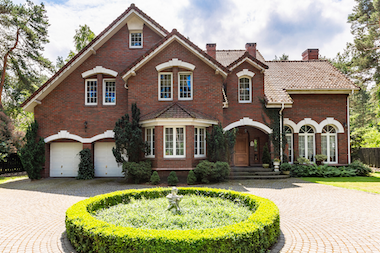Understanding the Real Estate Process: What Every Home Vendor Must Know
Maneuvering the property procedure can be intimidating for home sellers. Townhomes for Sale. Each action, from preparing a home offer for sale to closing the purchase, calls for cautious factor to consider and strategic preparation. House owners must recognize how to properly price their residential property and bring in prospective customers. As they deal with arrangements and offers, the intricacies can quickly escalate. What are the vital components that can help sellers do well in this competitive market? The responses might surprise you
Preparing Your Home to buy
When property owners determine to sell their property, they should initially concentrate on preparing their home up for sale to bring in prospective buyers. This preparation includes numerous vital actions focused on enhancing the home's allure. A complete cleansing is vital; every area needs to be spotless, allowing buyers to imagine themselves in the space. Decluttering is additionally essential, as it produces an impact of spaciousness. House owners should consider making small repair services, such as dealing with dripping faucets or patching wall openings, which can greatly boost the general appearance.
Staging the home is another reliable approach, as it showcases the residential or commercial property's best attributes and permits purchasers to picture their lifestyle in the room. Furthermore, curb allure must not be overlooked; preserving the landscape design and making certain the outside is visually appealing can make a strong initial perception. By diligently preparing their home, vendors can enhance the likelihood of an effective sale.
Prices Your Home Strategically

Furthermore, overpricing can discourage interested buyers and lead to long term market time, while underpricing may cause lost profit possibilities. Engaging a property professional can supply valuable understandings and a comparative market analysis to establish a competitive rate.
Sellers should likewise be mindful of market fads, as financial problems and buyer need can fluctuate. Eventually, a well-researched rates strategy balances bring in purchasers and making the most of returns, making sure a smoother purchase procedure. Appropriate pricing is a crucial action in the marketing trip, influencing both interest levels and the last sale end result.
Marketing Your Building Effectively
After determining a competitive price, efficiently marketing the residential or commercial property becomes the next important step in the home-selling process. Vendors need to concentrate on developing an appealing listing that highlights the residential property's best attributes, including premium pictures and an enticing description. Making use of online platforms is essential, as many customers start their search digitally. Social media can also enhance direct exposure, enabling vendors to reach a larger target market.
In addition, holding open residences can bring in potential customers and produce a feeling of urgency. Working together with a realty representative can even more enhance advertising initiatives, as they possess useful sector insights and accessibility to several listing solutions.
Staging the home can make a significant influence, allowing purchasers to imagine themselves living in the area. Consider targeted marketing in local papers or real estate publications to reach those that might not be energetic online. Efficient marketing approaches are essential for a successful sale
Navigating Negotiations and deals
Exactly how can sellers properly navigate the complexities of offers and arrangements? Recognizing the characteristics of this stage is essential for accomplishing a favorable outcome. Vendors should start by evaluating all deals thoroughly, thinking about not only the price yet also the terms, contingencies, and the customer's financial position. It is advisable to continue to be objective and stay clear of psychological responses, as settlements can frequently be tense.

Closing the Sale Effectively
Successfully closing a sale requires meticulous focus to detail and comprehensive prep work. Home sellers should assure that all required documents remain in Home Buying order, including the acquisition arrangement, title deed, and disclosures. Performing a final walkthrough permits sellers to validate the residential property's condition lines up with the agreed terms.
Communication is vital; sellers should maintain call with their property agent, purchasers, and legal representatives throughout the procedure. Understanding closing expenses, which can consist of agent charges, tax obligations, and transfer fees, is essential for financial preparation.
Vendors need to likewise be planned for potential last-minute settlements or demands from buyers. A successful closing pivots on the capacity to remain versatile and receptive.
Eventually, a well-coordinated closing procedure can lead to a smooth changeover, enabling vendors to settle their sale confidently and progress to their following phase.
Frequently Asked Concerns
What Are the Tax Obligation Implications of Offering My Home?
The tax obligation implications of selling a home can be considerable. Normally, vendors may encounter capital gains taxes on profits exceeding exemptions. Private scenarios and regional regulations can even more affect the general tax liability during the sale.
How Do I Choose the Right Real Estate Representative?
Picking the ideal genuine estate representative includes evaluating their experience, regional market expertise, communication skills, and customer testimonials. Contrasting numerous agents assists ensure a great fit, ultimately leading to a smoother marketing procedure.
What Should I Reveal to Prospective Buyers?
When marketing a residential property, vendors should disclose well-known flaws, past repair work, ecological dangers, and any type of legal issues affecting the home. Transparency cultivates trust fund and can protect against future lawful difficulties, making certain a smoother deal process.
Can I Market My Home Without a Realty Agent?
Marketing a home without a realty agent is possible; nevertheless, it requires persistance in pricing, advertising and marketing, and navigating legal intricacies. Many homeowners successfully finish this process independently, however it can be testing without professional advice.

How much time Does the Entire Selling Process Usually Take?
The entire marketing process commonly takes anywhere from a few weeks to numerous months (Home Selling). Variables such as market conditions, building preparation, and negotiations can considerably affect the duration, making each sale distinct in its timeline
Steering the genuine estate process can be frightening for home vendors. Sellers should likewise be conscious of market trends, as economic conditions and purchaser need can fluctuate. Home sellers need to assure that all necessary papers are in order, consisting of the acquisition agreement, title deed, and disclosures. Communication is crucial; vendors should maintain contact with their genuine estate representative, customers, and lawful reps throughout the process. When marketing a residential property, vendors must disclose known problems, past repair services, environmental dangers, and any lawful concerns influencing the home.